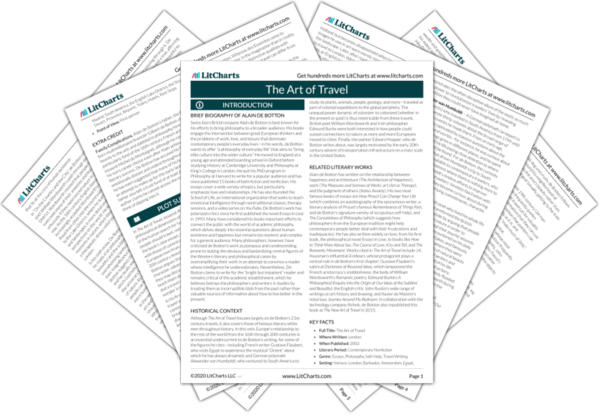Previous
Edward Hopper
|
Previous
Edward Hopper
|
Gustave Flaubert Character Analysis |
Next
Alexander von Humboldt
|
What we find exotic abroad may be what we hunger for in vain at home.
Yet none of this meant that Flaubert’s original attraction to Egypt had been misconceived. He simply replaced an absurdly idealized image with a more realistic but nevertheless still profoundly admiring one, he exchanged a youthful crush for a knowledgeable love.
We are all of us, without ever having any say in the matter, scattered at birth by the wind onto various countries, but like Flaubert, we are in adulthood granted the freedom imaginatively to re-create our identity in line with our true allegiances.
